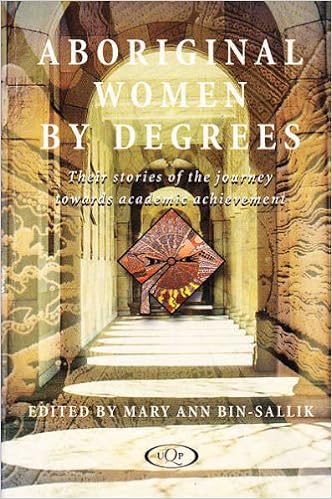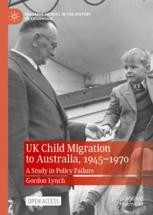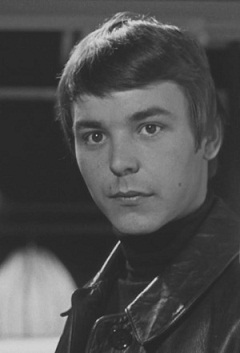Search Results
5233 items found for ""
- Monroe Martin III
Actors Monroe Martin III Monroe Martin III is an actor and writer, known for Late Night (2019), Charlamagne & Friends (2013) and Master of None (2015). Monroe Martin III grew up in foster care in the United States. External Website
- Angela Shelton (Actor)
Actors Angela Shelton (Actor) Angela Shelton (b. 1972) is an American actor and screenwriter. She was in the foster care system as a child and in 2001 was inspired to make a documentary for which she interviewed 40 women, many of whom had experienced domestic violence. Search for Angela Shelton won 12 awards and the May of Asheville proclaimed April 29, 2005, Angela Shelton Day. Shelton's memoir about surviving sexual abuse was released in 2007. External Website
- Relinquished
Academic Books & Book Chapters Relinquished Gretchen Sisson 2024 Dr Gretchen Sisson is a sociologist whose qualitative research interests focus on abortion and adoption in the United States. Her book Relinquished: The Politics of Adoption and the Privilege of American Motherhood draws from interviews she has conducted with women who have relinquished their babies to adoption. From the publisher’s site: “Adoption has always been viewed as a beloved institution for building families, as well as a mutually agreeable common ground in the abortion debate, but little attention has been paid to the lives of mothers who relinquish infants for private adoption. Relinquished reveals adoption to be a path of constrained choice for those for whom abortion is inaccessible, or for whom parenthood is untenable. The stories of relinquishing mothers are stories about our country's refusal to care for families at the most basic level, and to instead embrace External Website
- The Orphan: A Journey to Wholeness
Academic Books & Book Chapters The Orphan: A Journey to Wholeness Audrey Punnett 2014 The Orphan: A Journey to Wholeness addresses loneliness and the feeling of being alone in the world, two distinct characteristics that mark the life of an orphan. Regardless if we have grown up with or without parents, we are all too likely to meet such experiences in ourselves and in our daily encounters with others. With numerous case examples, Dr. Punnett describes how loneliness and the feeling of being alone tend to be repeated in later relationships and may eventually lead to states of anxiety and depression. The main purpose of this book is not to just stay within the context of the literal orphan, but also to explore its symbolic dimensions in order to provide meaning to the diverse experiences of feeling alone in the world. In accepting the orphan within, we begin to take responsibility for our own unique life journey, a privileged journey in which one can at some point in time say with pride, I am an orphan. External Website
- Aboriginal women by degrees : their stories of the journey towards academic achievement
Autobiography/Memoir Aboriginal women by degrees : their stories of the journey towards academic achievement Mary Ann Bin-Sallik 2000 This book includes the story of Mirrakopal or Miriam Stead Raymond who was born c1948 and her people are the Marranguggu Mak Mak of Finniss River in the the Northern Territory. Mirrakopal was taken from her family as a child and grew up in a white foster family in Adelaide, South Australia. External Website
- Conversations with Myself
Autobiography/Memoir Conversations with Myself Nelson Mandela 2011 From letters written in the darkest hours of his twenty-seven years of imprisonment to the draft of an unfinished sequel to Long Walk to Freedom, Conversations with Myself gives readers access to the private man behind the public figure. Here he is making notes and even doodling during meetings, or transcribing troubled dreams on the desk calendar in his prison cell on Robben Island; writing journals while on the run during the anti-apartheid struggle in the early 1960s, and conversing with friends in almost seventy hours of recorded conversations. External Website
- Artists, V
Authors V Leonardo da Vinci ➝ Back to Top
- Who Cares?: Young People in Care Speak Out
Academic Books & Book Chapters Who Cares?: Young People in Care Speak Out Raissa Clark Page et al. 1977 Written by a group of young people in care, this publications provided a platform from which they could speak freely about their hopes, aspirations, contentions, criticisms and fears. As well as detailing their experiences of public care, it highlighted those aspects of the system that needed addressing to ensure that it meets the social, emotional and educational needs of all children and young people. External Website
- UK Child Migration to Australia, 1945-1970: A Study in Policy Failure
Academic Books & Book Chapters UK Child Migration to Australia, 1945-1970: A Study in Policy Failure Gordon Lynch 2021 This book offers an unprecedented analysis of child welfare schemes, situating them in the wider context of post-war policy debates about the care of children. Between 1945 and 1970, an estimated 3,500 children were sent from Britain to Australia, unaccompanied by their parents, through child migration schemes funded by the Australian and British Governments and delivered by churches, religious orders and charities. Functioning in a wider history of the migration of unaccompanied children to overseas British colonies, the post-war schemes to Australia have become the focus of public attention through a series of public reports in Britain and Australia that have documented the harm they caused to many child migrants.Whilst addressing the wide range of organisations involved, the book focuses particularly on knowledge, assumptions and decisions within UK Government Departments and asks why these schemes continued to operate in the post-war period despite often failing to adhere to standards of child-care set out in the influential 1946 Curtis Report. External Website
- Barry Evans
Actors Barry Evans Barry Joseph Evans (18 June 1943 – 9 February 1997) was an English actor best known for his appearances in British sitcoms such as Doctor in the House and Mind Your Language. Barry Evans was born in Guildford, Surrey. He was abandoned as a baby and grew up in a Barnardo’s home in Twickenham, a suburban town in Middlesex. Evans’ acting ability was recognised while he was still at school. After he left, he won a John Gielgud Scholarship which enabled him to study at the Central School of Speech and Drama. Evans made his theatre debut in Barrow-in-Furness. He went on to appear in Chips with Everything on Broadway in 1963. He finished his working life as a taxi driver so he could have a regular income. Barry Evans was found dead in his home in Leicestershire. He had received a blow to the head and an 18-year-old man was arrested, but never charged with murder. External Website
- Arshile Gorky
Artists Arshile Gorky Arshile Gorky (1904 – 1948) was an Armenian-American painter who had a seminal influence on Abstract Expressionism. In 1915, the boy and his mother and three sisters escaped Lake Van and he travelled to the United States as a sixteen year old. He spent most his life as a national of the United States. Along with Mark Rothko, Jackson Pollock and Willem de Kooning, Gorky has been hailed as one of the most powerful American painters of the 20th century. As such, his works were often speculated to have been informed by the suffering and loss he experienced in the Armenian Genocide. External Website
- Billy Connolly
Actors Billy Connolly Billy Connolly (b. 1942), was born in Glasgow. When he was 3 and his sister, Florence, 4, their mother abandoned the children, living the children at home on their own. Neighbours heard the cries of the chilren and took them to an orphanage. At the time, the children's father, William Connolly, was serving with the Royal Air Force in Burma. Williams 2 unmarried sisters, Margaret and Mona, collected the children from the orphanage and and too them in. After the war, William Connolly moved in with his sisters and his children. He sexually abused his son, and Mona physically beat Billy on a daily basis. Billy left school at 15, eventually supporting himself through folk singing before he moved to comedy and became one of the most influential stand-up comedians of all time. He retired from comedy in 2018. As an actor, Billy Connolly has appeared in numerous films between 1993 and 2014 and he was nominated for a BAFTA for Best Actor for Mrs Brown (1997). He has received numerous awards, including a BAFTA Lifetime Achievement Award (2003) and honorary doctorates from the University of Glasgow (2001), Nottingham Trent University (2010) and Strathclyde (2017). In 2017, Billy Connolly was knighted “for services to entertainment and charity.” External Website
- Lesley Sharp
Actors Lesley Sharp Lesley Sharp (born 3 April 1960) is an English stage, film and television actress whose roles on British television include Clocking Off (2000–2001), Bob & Rose (2001) and Afterlife (2005–2006). She was nominated for the BAFTA Award for Best Actress in a Supporting Role for the 1997 film The Full Monty. Sharp was born in Manchester, England, and was adopted at 6 weeks old by a Scottish couple—the Sharps. Born Karen Makinson, she was renamed Lesley Sharp upon her adoption at 6 weeks old. She grew up in Formby, which is north of Liverpool. She has an older sister. Sharp has stated that she started acting because, as a child, she felt "invisible" and did not "quite fit in".[3] She has said that her inspiration to act came from watching Dick Emery on television.[4] Sharp attended the Guildhall School of Music and Drama in the class of 1982. She traced her birth mother over twenty years ago and discovered that she was the result of her mother's affair with a married man. External Website
- Cultural, autobiographical and absent memories of orphanhood
Academic Books & Book Chapters Cultural, autobiographical and absent memories of orphanhood Delyth Edwards 2017 This book offers an empirically informed understanding of how cultural, autobiographical and absent memories of orphanhood interact and interconnect or come into being in the re-telling of a life story and construction of an identity. The volume investigates how care experienced identities are embedded within personal, social and cultural practices of remembering. The book stems from research carried out into the life (hi)stories of twelve undervalued ‘historical witnesses’ (Roberts, 2002) of orphanhood: women who grew up in Nazareth House children’s home in Belfast, Northern Ireland, during the 1940s, 50s and 60s. Several themes are covered, including histories of care in Northern Ireland, narratives and memories, sociologies of home, and self and identity. The result is an impressive text that works to introduce readers to the complexity of memory for care experienced people and what this means for their life story and identity. External Website
- Two Mothers - Twice the blessing or was I cursed?
Academic Articles Two Mothers - Twice the blessing or was I cursed? Deidre Michell 2002 Two Mothers - Twice the blessing or was I cursed? Exploring the Motherhood of God in the context of neglect, abandonment and abuse by women is a challenge to feminist theogolical ideas that Motherhood should be included in the Godhead solely on the grounds that mothers are superior when it comes to nurturing and caring for children. External Website
- Academic Books & Book Chapters, F
Authors F Street urchins, sociopaths and degenerates: orphans of late-Victorian and Edwardian fiction ➝ Back to Top
- Orphans: A History
Academic Books & Book Chapters Orphans: A History Jeremy Seabrook 2018 Orphans have often been beneficiaries of charity and compassion--but society has also punished, abused and ill-treated them. Attitudes behind this maltreatment are rooted in ideas that those without parents are disruptive, malevolent, and in need of discipline. Drawing on historic documents, interviews and memoirs, Jeremy Seabrook charts history's changing and often loose definitions of "orphans," and explores their many "makers"--from natural or man-made catastrophes to the State, charity, and other social forces that have separated children, especially the poor, from their close kin.But this history is not only one of suffering: Orphans also reveals the uncounted millions taken in and loved by relatives, neighbors or strangers. Freed from constraints and driven by insecurity, many orphans--including Nelson Mandela, Marilyn Monroe and Steve Jobs--have led remarkable lives. External Website
- Incarnations of the Orphan
Academic Articles Incarnations of the Orphan Nina Auerbach 1975 For decades Nina Auerbach's article on representations of the orphan was one of the few on the topic. She writes: "For it is an easy sentimental mistake to think of the orphan as fragile. He seems composed of alternate layers of glass and steel, and sends out sting rays at those who try to adopt him. He first appears in the eighteen century as a slyly potent underground figure...But even the Romantic waif is brimming with a certain equivocal energy...His solitude eneregizes him as a visionary artist, and silent schemer, his appearance of winsome fragility feeding into his pwoer of survival." Auerbach's analysis includes Moll Flanders, Jane Eyre, Becky Sharp, Healthcliff and Pip of Great Expectations External Website
- Street urchins, sociopaths and degenerates: orphans of late-Victorian and Edwardian fiction
Academic Books & Book Chapters Street urchins, sociopaths and degenerates: orphans of late-Victorian and Edwardian fiction William David Floyd 2014 From the notable emergence of orphan figures in late eighteenth-century literature, through early- and middle-period Victorian fiction and, as this book argues, well into the fin de siècle, this potent literary type is remarkable for its consistent recurrence and its metamorphosis as a register of cultural conditions. The striking ubiquity of orphans in the literature of these periods encourages inquiry into their metaphoric implications and the manner in which they function as barometers of burgeoning social concerns. The overwhelming majority of criticism focusing on orphans centres particularly on the form as an early- to middle-century convention, primarily found in social and domestic works; in effect, the non-traditional, aberrant, at times Gothic orphan of the fin de siècle has been largely overlooked, if not denied outright. This oversight has given rise to the need for a study of this potent cultural figure as it pertains to preoccupations characteristic of more recent instances. This book examines the noticeable difference between orphans of genre fiction of the fin de siècle and their predecessors in works including first-wave Gothic and the majority of Victorian fiction, and the variance of their symbolic references and cultural implications. External Website
- Maria Amidu
Artists Maria Amidu Maria Amidu is a graduate of the Royal College of Art in glass and ceramics and exhibited nationally and internationally as maker before pursuing a more social practice. From the age of six, Maria grew up in the UK care system after her mother died and her father returned to Nigeria. As a socially engaged artist, Maria has a commitment in her work to hidden stories, to people who have been unremembered. External Website














